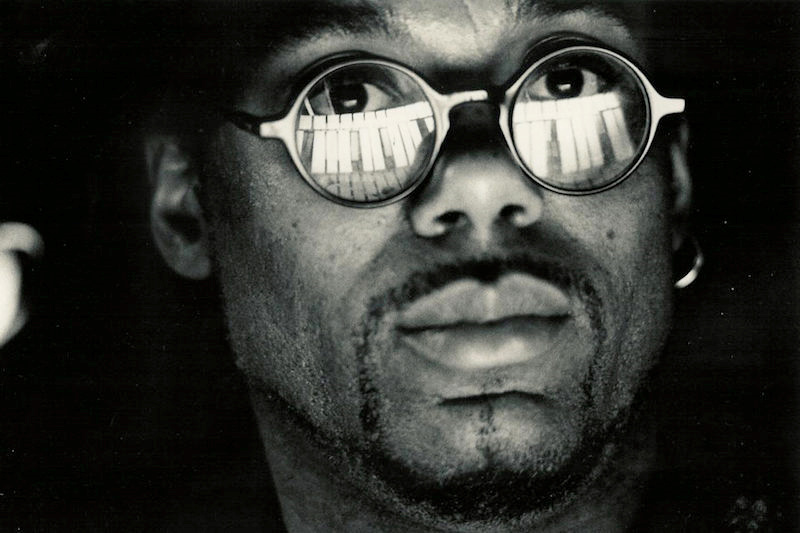LJF 2018: Orphy Robinson
Simon Adams hears the vibist capture the incandescent delights of Astral Weeks, possibly 'one of the finest jazz vocal albums ever'
 Van Morrison’s Astral Weeks was released 50 years ago this month and is now considered one of rock’s masterpieces, a transcendental song cycle that defines its era. But it had a far from auspicious start. Van Morrison’s Astral Weeks was released 50 years ago this month and is now considered one of rock’s masterpieces, a transcendental song cycle that defines its era. But it had a far from auspicious start.
Recorded in two short evening sessions in New York in September and October 1968 and released that November, it initially failed to make much impact and sold poorly, only slowly gaining the critical attention it deserved.
It was only Morrison’s second album, and his inexperience in the studio showed. The bassist on the session remarked later that there was “No prep, no meeting. [Morrison] was remote from us, 'cause he came in and went into a booth... And that's where he stayed, isolated in a booth. I don't think he ever introduced himself to us, nor we to him... And he seemed very shy..." The drummer asked Morrison "what he wanted me to play, and he said to play whatever I felt like playing. We more or less sat there and jammed".
No leads sheets were supplied to the band: Morrison just played the songs on his guitar and told the group to go ahead and play exactly what they felt. The session guitarist greatly appreciated the freedom given to him and the band; something few, if any, of them were used to. "I played a lot of classical guitar on those sessions and it was very unusual to play classical guitar in that context".
Luckily for Morrison, his band of session musicians were all acclaimed jazz musicians. The aforementioned bassist was Richard Davis, he of Eric Dolphy’s Out To Lunch and Andrew Hill’s Point Of Departure. Rock journalist Greil Marcus, writing in The Rolling Stone Illustrated History Of Rock, states that Davis “provided the greatest bass ever heard on a rock album”, for he was the most pivotal instrumentalist during these sessions. As producer Lewis Merenstein remarked, "If you listen to the album, every tune is led by Richard and everybody followed Richard and Van's voice”. Guitarist Jay Berliner had played on Mingus’s Black Saint And The Sinner Lady, while percussionist and vibist Warren Smith went on to run an important jazz loft in New York and become a member of Max Roach’s M’Boom percussion ensemble. Perhaps most significantly, the drummer was no less a personage than Connie Kay of the Modern Jazz Quartet.
Given that line-up, it's no wonder vibist Orphy Robinson (pictured above right) was drawn to the album and why it was celebrated at this year’s London Jazz Festival. Oddly, while Robinson was aware of individual tracks, he had never heard the entire album until a couple of years ago. It must have been a revelation, for he captured its incandescent delights with ease. Using a core group of eight musicians roughly matching but extending the original line-up, plus four singers, Robinson led his merry band through the album track by track, his vibes shimmering just as Warren Smith’s did all those years ago.
Most pieces stayed close to the original music, although vocalist Sarah Jane Morris turned Cyprus Avenue into a Janis Joplin hard-bitten blues, a long, long way from the love fantasy sung by a poetic Morrison fantasising about a refined school girl “with rainbow ribbons in her hair” he saw in Cyprus Avenue, a wealthy, wooded street in Belfast (and well worth a visit if you are in the city). She redeemed herself, however, on the reverie that is Madame George. Joe Sang delivered many of the lyrics with enough of a light touch to recall Morrison’s own voice at the time – it has since darkened and deepened – while Zara McFarlane brought a touch of impassioned soul singing to the proceedings. As a finale, some quick run-throughs of three Morrison classics – Moondance, Crazy Love, and an uptempo Jackie Wilson Said - ended the evening in fine style.
Astral Weeks has a good case to be considered as one of the finest jazz vocal albums ever, for Morrison improvises his vocal lines just as much as his band improvised their parts. Yet there is a great mystery about it: did Morrison ever realise just how good, and how famous, his sessions musicians were, and did they, in turn, knocking out two evening sessions on union pay rates, realise they were creating a modern masterpiece? | |
